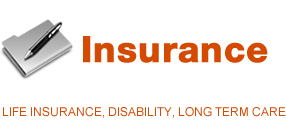As the owner of a practice or small business, you are key to its success. Your customers and employees rely on you. If you were to become disabled, there would not only be a personal loss of income, but significant consequences for your business as well.
Just How Would Your Being Disabled Affect Your Business?
In the event of a disability, you could be unable to provide the essential services your customers expect, and you may not be able to provide the leadership that your employees need.
Business expenses and operating costs do not stop when disability strikes a business principle. As your day-to-day expenses add up, you might be forced to consider severe measures like terminating employees, taking on debt, or possibly even closing your business.
Overhead Expense Disability Insurance Can Help With Everyday Business Expenses.
A cost-effective way to ensure that your business can meet its ongoing expenses during a period of disability is with Overhead Expense (OE) Disability Insurance. Preserving the continuity of the business and retaining your customers is important whether you eventually return to work or find that you need to sell your business.
OE Covers The Following Overhead Expenses:
-Rent
-Utilities
-Taxes
-Salary and benefits of your employees
-Interest and installment payments on loans
-And many more.........
Policyholders are reimbursed for 100% of actual covered business expenses each month, up to a maximum monthly benefit amount.
Purposefully Designed For Fluctuating Cash-Flow Needs
Overhead expense coverage was designed with the cash-flow needs of business owners in mind. Coverage includes:
-All the normal, necessary and customary expenses incurred to run your business - including mortgage payments or rent, utilities, salaries, taxes, interest on debt, loan payments and more.
-Carry-over Provision - accommodates fluctuating monthly expenses by allowing any unused portion of your maximum monthly expense benefit to be made available for use in months when expenses exceed the maximum benefit.
Tax Advantages Of Overhead Expense DI
-Premium payments are generally tax-deductible as ordinary and necessary business expenses.
-Overhead Expense benefits received during your disability are taxable upon receipt. However, they are used to pay business-related expenses that are tax-deductible.
For more information contact us at (949)275-6233, or visit our website at www@levineadvisors.com







